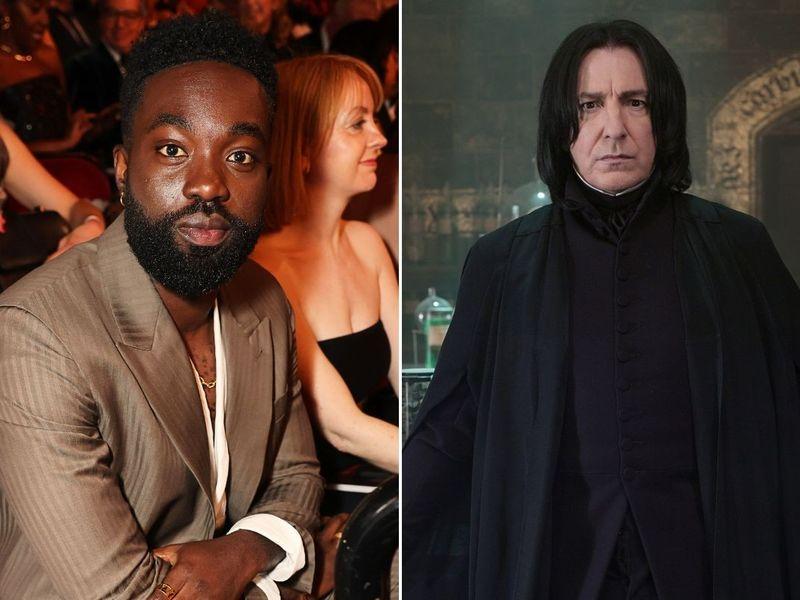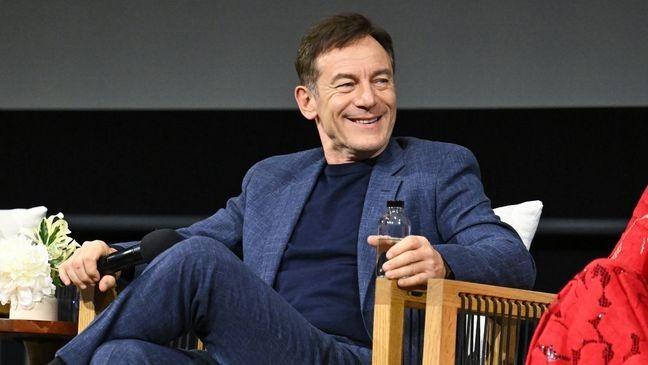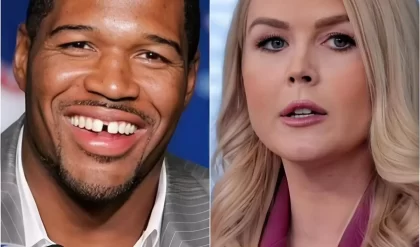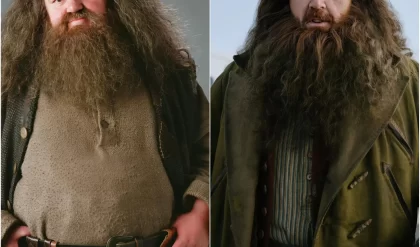The wizarding world of Harry Potter is no stranger to passionate debates, but the recent casting of Paapa Essiedu as Severus Snape in HBO’s upcoming television adaptation has sparked a firestorm of controversy. Jason Isaacs, the beloved actor who portrayed Lucius Malfoy in the original Harry Potter film series, has stepped into the fray, fiercely defending Essiedu against what he calls “racist” backlash from some fans. His bold stance, coupled with high praise for Essiedu’s talent, has reignited discussions about diversity, casting choices, and the legacy of J.K. Rowling’s iconic franchise.

At a recent panel at FanExpo Denver, Isaacs didn’t mince words when addressing the online criticism directed at Essiedu, a Black actor of Ghanaian descent known for his Emmy-nominated role in I May Destroy You. “Paapa Essiedu is one of the best actors I’ve ever seen in my life,” Isaacs declared. “I’ve seen some people online who are being rude about him. What they’re being is racist. All the cast of the new Harry Potter TV series are amazing. They will be swallowing their tongues, hopefully — you know, their digital tongues — when they see what Paapa does on screen.” His words carry the weight of someone who not only starred in the original films but also understands the complexities of bringing a cherished story to a new generation.
The casting of Essiedu as Severus Snape, a role immortalized by the late Alan Rickman, has divided fans. Snape, described in Rowling’s books as having “sallow skin, a large hooked nose, and yellow, uneven teeth,” is a complex character whose arc spans unrequited love, betrayal, and redemption. Some fans argue that Essiedu’s casting deviates from the book’s physical description, claiming it disrupts their vision of the character. Others have expressed deeper concerns, suggesting that casting a Black actor as Snape could alter the narrative dynamics of his backstory, particularly his experiences with bullying and his allegiance to the Death Eaters, a group obsessed with blood purity. These arguments, however, have been met with accusations of veiled racism, with critics pointing out that similar objections were raised when a Black actress was cast as Hermione Granger in the stage production of Harry Potter and the Cursed Child.

Isaacs’ defense of Essiedu isn’t just a reaction to the backlash but a celebration of the actor’s undeniable talent. Essiedu, whose credits include acclaimed performances in Black Mirror, The Lazarus Project, and Gangs of London, brings a commanding presence to every role he undertakes. His ability to balance humor and solemnity, as noted by Guardian writer Jason Okundaye, makes him a compelling choice for Snape, a character defined by emotional depth and moral ambiguity. Okundaye, in an April 2025 article, argued that Essiedu’s casting could enrich Snape’s story, particularly in exploring themes of prejudice and identity already present in the series. “In Clint Dyer and Roy Williams’ play Death of England, Essiedu masterfully played a Black working-class Brexit-voting bailiff,” Okundaye wrote. “Similarly, Snape’s backstory of joining the Death Eaters is complicated by him being a ‘half blood’ who joins a blood purity cult advocating for a standard he does not meet. A Black Snape starts to look like a much richer prospect.”
The HBO series, set to begin production in the summer of 2025 and expected to premiere in late 2026 or early 2027, aims to adapt each of Rowling’s seven books into a full season, offering a deeper dive into the wizarding world than the films allowed. The cast, which includes John Lithgow as Albus Dumbledore, Janet McTeer as Minerva McGonagall, and Nick Frost as Rubeus Hagrid, has been praised for its diversity and talent. Newcomers Dominic McLaughlin, Alastair Stout, and Arabella Stanton will portray Harry Potter, Ron Weasley, and Hermione Granger, respectively, while Johnny Flynn takes over Isaacs’ role as Lucius Malfoy. Isaacs himself has expressed enthusiasm for Flynn’s casting, noting on X, “A fantastic actor, a lovely man and, irritatingly, a rather brilliant musician too. Couldn’t have handed the snake-topped baton on to anyone better.”

Yet, the excitement surrounding the series is tempered by broader controversies, particularly regarding J.K. Rowling’s involvement as a producer. Rowling, who has faced criticism for her views on transgender rights, addressed speculation about Essiedu’s casting in a May 2025 X post, stating, “I don’t have the power to sack an actor from the series and I wouldn’t exercise it if I did. I don’t believe in taking away people’s jobs or livelihoods because they hold legally protected beliefs that differ from mine.” Essiedu, who signed an open letter in support of transgender rights earlier this year, represents a point of tension for some fans who see his casting as a deliberate provocation. However, HBO executives have emphasized that the series will focus on the story itself, not Rowling’s personal views, with one executive stating, “Harry Potter is not secretly being infused with anything.”
The debate over Essiedu’s casting raises larger questions about representation in media. Some fans argue that casting a Black actor in a traditionally white role risks reinforcing stereotypes, particularly given Snape’s morally gray nature. One X user commented, “It’s racist to give black people lazy race swaps instead of investing in already established black characters or creating new ones.” Others, however, see Essiedu’s casting as an opportunity to challenge outdated notions of character fidelity. A supporter on X countered, “He was cast because he’s a very talented actor. There’s absolutely no reason to believe Snape being Black will ruin the immersion and the meaning of the story.”
Isaacs’ outspoken support for Essiedu underscores a broader call for inclusivity in the entertainment industry. His comments echo those of other Harry Potter alumni who have championed diversity in the franchise. The series’ casting choices reflect a deliberate effort to reflect a modern, multicultural audience, a move that aligns with the themes of acceptance and unity at the heart of Rowling’s story. As production moves forward, all eyes will be on Essiedu to see how he reinterprets a character so deeply etched into popular culture by Rickman’s unforgettable performance.
For now, the wizarding world waits with bated breath to see how this new chapter unfolds. Will Essiedu’s Snape silence the critics with a performance that captures the potion master’s brooding intensity? If Isaacs’ confidence is any indication, fans may soon find themselves enchanted by a Snape who brings fresh depth to an already iconic role. As the series promises to delve deeper into the nuances of Rowling’s world, Essiedu’s casting could prove to be a bold step toward reimagining a story that continues to captivate millions.





